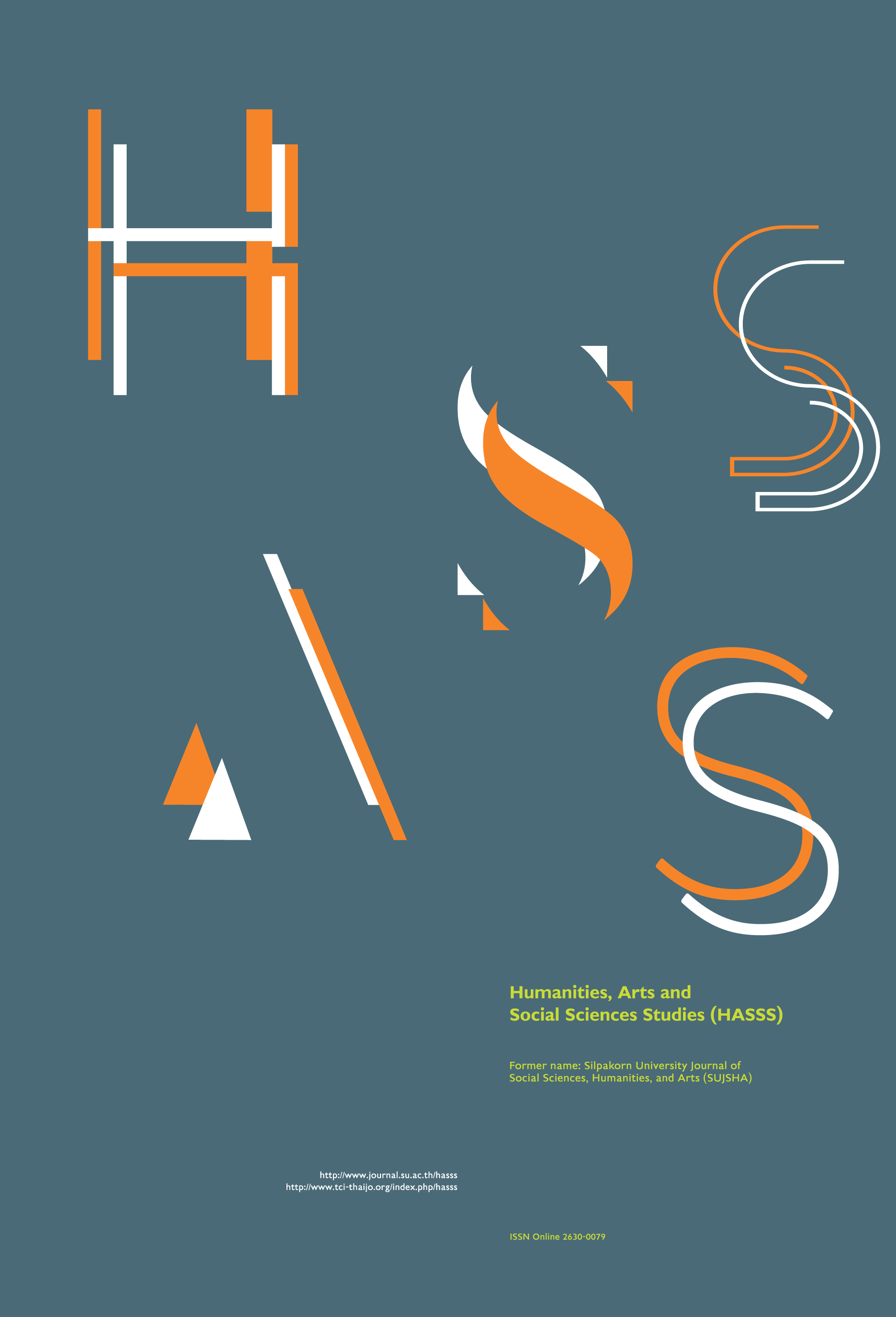Stakeholders’ trustability toward co-creating and co-investment in safe agriculture
Main Article Content
Abstract
The impact of the New Land and Building Tax Law will increase land holding costs, particularly for vacant land. Landowners who have insufficient cash may not be able to cope with a new tax burden. This study explored the possibility of bringing unutilized land plots into production towards co-creation and co-investment in safe vegetable farming by emphasizing minimization of the external derived inputs such as pesticides or synthetic chemical fertilizers to create more self-reliant sources of vegetables for consumers. The objectives of this study were: 1) to comprehend landowners’, consumers’, and investors’ perceptions as the core stakeholders toward sustainable agriculture investment, and to identify the limitations and expectations of each group by using semi-structured interviews and questionnaires of 50 landowners, 100 consumers, and 50 investors. The findings indicated that lack of trust was one of the most crucial aspects; 2) to design a conceptual model, called CO-VEGGIES, based on some key applications of Participatory Guarantee Systems (PGS), i.e. the network of the strong stakeholder’s relationship, shared values, open-information, and direct participation to build trust; 3) to test the conceptual model to identify key elements in the stakeholders’ trustworthiness by using semi-structured interviews and questionnaires of 120 samples including 30 landowners, 60 consumers, and 30 investors. The findings suggested that stakeholders’ direct participation in the conceptual CO-VEGGIES model resulted in greater empowerment and the positive development of trust and quality assurance.
Downloads
Article Details
All rights reserved. Apart from citations for the purposes of research, private study, or criticism and review,no part of this publication may be reproduced, stored or transmitted in any other form without prior written permission by the publisher.
References
BIOTHAI. (2016). The 2nd Report on Pesticide Contamination Monitoring on Fruits and Vegetables 2016. [Online URL: https://www.biothai.org/node/1427] accessed on October 20, 2017.
Cuéllar-Padilla, M. and Ganuza-Fernandez, E. (2018). We don’t want to be official certified! Reason and implication of the Participatory Guarantee Systems. Sustainability 10(4): 1-15.
Eden, S., Bear, C. and Walker, G. (2008). Understanding and (dis)trusting food assurance schemes: consumer confidence and the ‘knowledge fix’. Journal of Rural Studies 24(1): 1-14.
Ekachai, S. (2017). No Poison Paradise for Toxic Farm Chemicals. [Online URL: https://www.bangkokpost.com/opinion/opinion/1332767/no-poison-paradise-for-toxic-farm-chemicals] accessed on June 30, 2018.
Global Impact Investing Network. (2016). Impact Investing Trends: Evidence of a Growing Industry. [Online URL: https://thegiin.org/research/publication/impact-investing-trends#charts] accessed on June 28, 2018.
IFOAM Organics International. (2008). Participatory Guarantee Systems (PGS). [Online URL: https://www.ifoam.bio/en/organic-policy-guarantee/participatory-guarantee-systems-pgs] accessed on June 14, 2018.
Johnson, G. I., Weinberger, K. and Wu, M. H. (2008). The Vegetable Industry in Tropical Asia: An Overview of Production and Trade, with a Focus on Thailand, Indonesia, Philippines, Vietnam, and India. Shanhua: AVRDC-the World Vegetable Center.
Källander, I. (2008). Participatory Guarantee Systems – PGS. Stockholm: Swedish Society for Nature Conservation.
Meijboom, F. L., Visak, T. and Brom, F. (2006). From trust to trustworthiness: why information is not enough in the foods sector. Journal of Agricultural and Environmental Ethics 19: 427-442.
Myers, M. D. (2008). Qualitative Research in Business and Management. London: SAGE.
Nelson, J. (1991). Marketing of Pesticide-Free Vegetables in Bangkok. Bangkok: Asian Institute of Technology.
Royal Project Foundation. (n.d.). Logo of Foundation. [Online URL: http://www.royalprojectthailand.com/logo?fbclid=IwAR3GVTbPRsNt1cBoIH5RSJ7s-SOc8BRgNNub0-pUvHdTWiGQhcuvxnZLtqA] accessed on June 23, 2018.
Takeuchi, M. T. and Boonprab, K. (2006). Food safety situations in Thailand with regard to their Thai’s food safety knowledge and behaviors. Agriculture and Natural Resources 40(5): 222-228.
Wanwimolruk, S., Phopin, K., Boonpangrak, S. and Prachayasittikul, V. (2016). Food safety in Thailand 4: comparison of pesticides residues found in three commonly consumed vegetables purchased from local markets and supermarkets in Thailand. PeerJ: 1-23.
Wongprawmas, R., Canavari, M. and Waisarayutt, C. (2015). Are Thai consumers willing to pay for food safety labels? Choice experiment of fresh produce. Paper presented at the EAAE 2014 Congress ‘Agri-Food and Rural Innovations for Healthier Societies’. Ljubljana. August 26-29.


